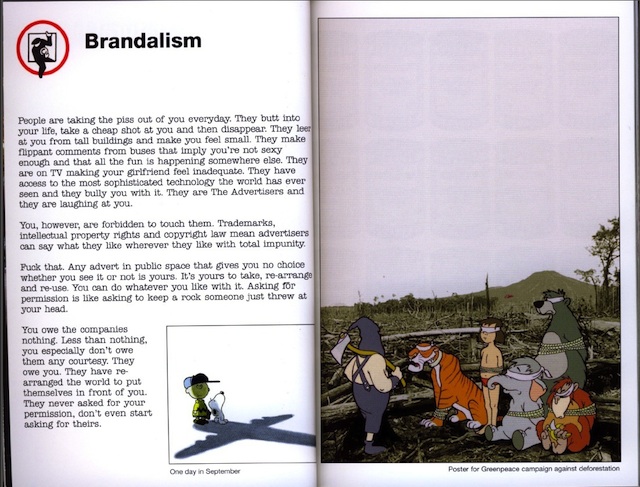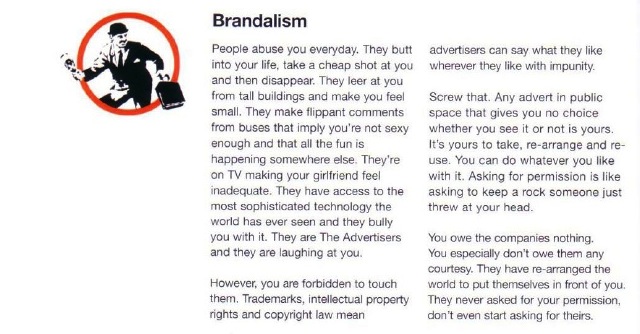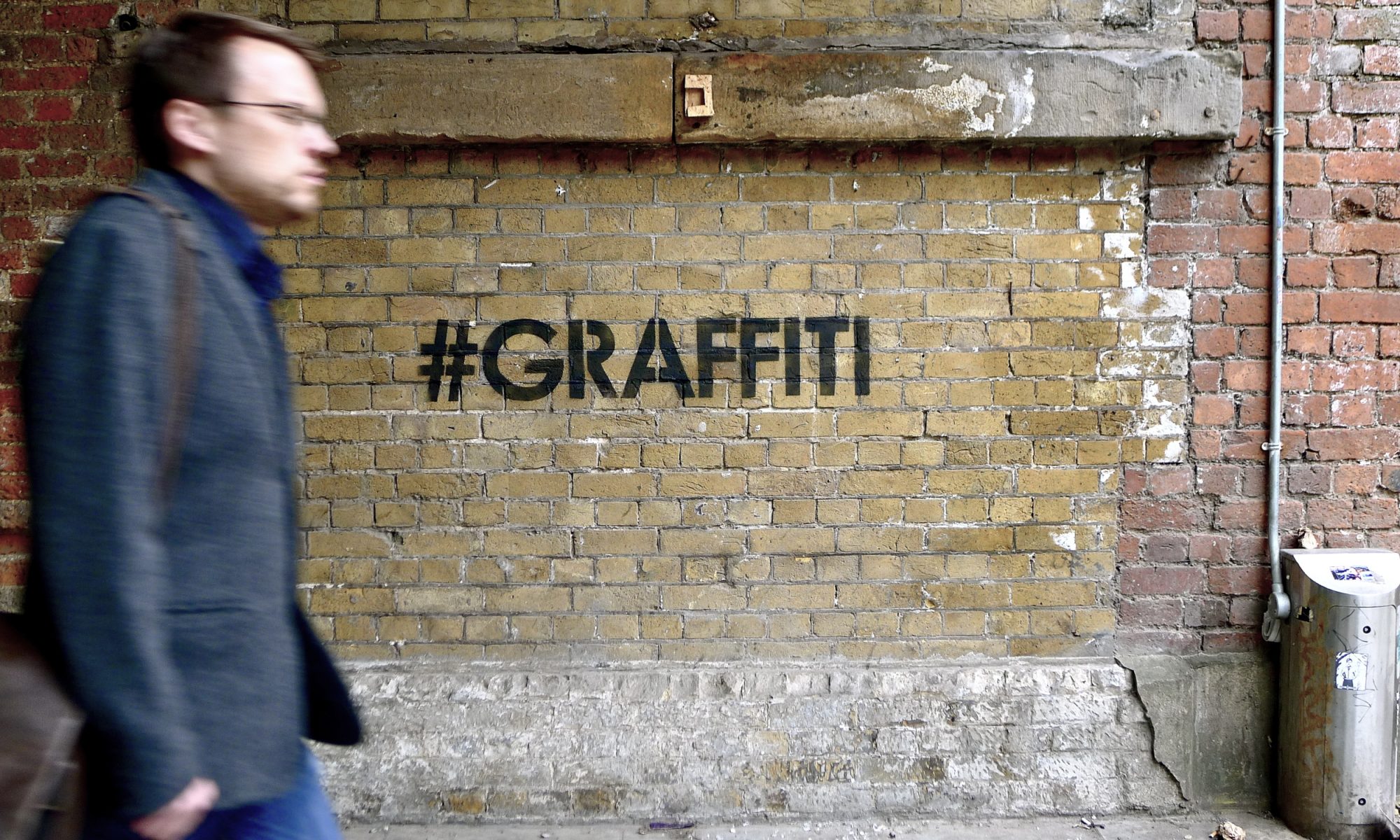
You know what’s awesome? When things work out nicely and people don’t freak out. Last week, Hurt You Bad ran a post called “Banksy Plagiarism” claiming, as usual, something along the lines that most Banksy fans are idiots and that Banksy himself is a scumbag. And perhaps they are right, but at least this time they took their evidence entirely out of context and neglected to tell the full story.
Hurt You Bad pointed out that Banksy’s well-circulated “Brandalism” quote is largely based on a piece that Sean Tejaratchi wrote in 1999 for Crap Hound, a zine. Version of the “Brandalism” piece appeared in two books by Banksy: Cut It Out and Wall and Piece (which is essentially bits of Banksy’s previous three books mashed together). Both times, it is fair to say that most people reading “Brandalism” would assume that Banksy is the author of the text. There is no attribution in Cut It Out or Wall and Piece directly linking “Brandalism” to the original essay, Crap Hound or Tejaratchi. The only things pointing to Tejaratchi at all are the thank-yous toward the end of Cut It Out and Wall and Piece. In both books, Banksy vaguely credits a number of people for either assisting him the book or for inspiring some of the content and Crap Hound is mentioned in that list. Certainly, Banksy could have done a better job citing Tejaratchi and this has led to people quoting Banksy when they probably should have been quoting Tejaratchi, but I’m not sure that this incident makes Banksy an outright plagiarist (something I’m sure my professors would hate to hear me say).

Recently, Tejaratchi noticed that “Brandalism” was attributed to Banksy but based on his own work, so he blogged about it. In the post, he lays out exactly what Banksy borrowed from his text and explains his feelings on the incident. Basically, Tejaratchi’s issue was not that his words had been used, but that his words were essentially attributed to Banksy without any heads up from Banksy. Here’s some of what Tejaratchi wrote:
It’s hard to know how to feel about this. My first thought was, “Hey, Banksy reads Crap Hound!” Then, “What the fuck is going on?” Then, “Am I a real person? Am I actually happening?” And finally, “Am I a beautiful flower angel sent from heaven to inspire Banksy?”
As problems go, it’s a pretty nice one to have. I like Banksy’s art and ideas. I’m flattered he liked my writing and my sentiments, and I’m happy others liked the quote enough to post and forward. I’ve seen forums where people are debating the passage, including rebuttals from ad-agency twats. It’s on wikiquotes and a hundred blogs. My essay never would have had that impact on its own.
The downside is that Banksy’s name is always on it. Seeing my writing credited to someone else makes it a little less magical. Same with knowing that one day (maybe soon, since the issue in question is being reprinted), I’ll get to hear how I ripped off Banksy.
Tejaratchi used the post and a few connections to reach out to Banksy without anger or ill-will, just a desire to get to the bottom of things and set the record straight. Within a few days, Tejaratchi heard from man himself and things have been resolved. The details of the resolution can be found here. Basically, it came down to two guys (Banksy and Tejaratchi) who both made some careless choices and now the truth is out and future reprints of Wall and Piece will have the words attributed correctly. Here’s Tejaratchi’s conclusion of his dealings with Banksy:
I realize “Banksy stole the quote!” is much more dramatic and satisfying than “Banksy made a poor stylistic choice in his book layout, causing confusion years later! He attempted to inform me but had the wrong address!” The man’s not an imbecile. This would have been an absurdly clumsy and doomed attempt at plagiarism. I will also say that in my recent, limited contact with Banksy, he’s gone out of his way to be clear, kind, and genuine, in every way the exact opposite of a twat.
I’m very grateful to everyone who wrote, posted, and tweeted about this. The quote will remain out there with Banksy’s name on it, but the source is now established online (and in future reprints) for anyone who looks deeper. Likewise, no matter what your opinion of Banksy, it’s important and fair to establish that this was not a case of plagiarism. Lack of foresight, yes. Fraud, no.
Basically, Banksy might have screwed up but Hurt You Bad jumped the gun in attacking him. Can Banksy be attacked for using Tejaratchi’s essay? Maybe. But Tejaratchi doesn’t mind. Should you? For once, it seems that a potentially explosive case of copyright violations has ended rationally and reasonably. If only all copyright holders had a more liberal view of things, maybe artists wouldn’t have to resort to doctoring evidence in court when they have done nothing wrong.
Images taken from scans Banksy’s books “Cut It Out” and “Wall and Piece” that I found online somewhere
